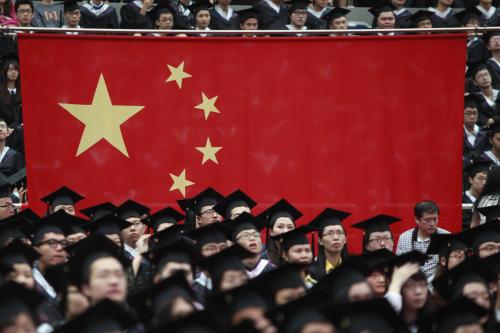Kim Jong-il’s death marks the end of his deeply troubled tenure as North Korea’s supreme leader and likely portends a period of acute uncertainty for the system he ruled for close to two decades. Kim inherited power from his father Kim Il Sung, a charismatic revolutionary who dominated North Korea from its inception in 1948 until his death in 1994. But his father began to contemplate leadership succession in the early 1970s, with Kim Jong-il formally designated as successor in 1980, enabling an extended apprenticeship close to the apex of power.
There will be no comparable transition period for Kim Jong-un, Kim Jong-il’s youngest son, who was thrust into the role of successor in the aftermath of his father’s severe stroke in the summer of 2008. The younger Kim was not publicly revealed as successor until September 2010, when he was incongruously designated a 4-star general at the age of 26. (The precise date of his birth is uncertain, but he was most likely born in 1984.) Over the past fourteen months, Kim Jong-il, frequently accompanied by Kim Jong-un, sustained a punishing schedule of internal inspection tours, hoping to vest authority in his young and wholly unproven son. He also undertook multiple trips to China and a visit to Russia seeking to secure the assent of Beijing and Moscow to a second dynastic succession in North Korea. His death (attributed to a variety of major ailments as well as “great mental and physical strain”) thus seems unsurprising.
Kim Jong-il’s frenetic pace in the waning months of his life was a race against time, highlighting the grim prospects of this isolated, idiosyncratic system. Though the North Korean economy has grown somewhat in recent years, it has never truly recovered from the economic implosion and famine suffered in the 1990s. The system is sustained by myths about its history and claims that its beleaguered citizens envy no one. The regime even claims to have opened the door to “a powerful and prosperous state,” but it remains an acutely damaged society that depends heavily on economic aid it can garner from abroad, especially from China. Its nuclear weapons and missile programs and recent instances of the use of force against South Korea—all activities with which Kim Jong-il was closely identified– hover over this disquieting picture, even as China and Russia both insist that Pyongyang is prepared to reenter nuclear negotiations with the United States from which it walked away in late 2008.
Though Kim Jong-il appears to have secured nominal fealty of his inner circle to his son’s elevation to top leadership, Kim Jong-un will be wholly dependent on his father’s close aides (including Kim Jong-il’s sister and brother-in-law) and the party, military, and public security organs that underlie the state’s extraordinary coercive powers. The reality remains unchanged: North Korea remains a broken society dominated by dark visions of an adversarial world, a population largely reduced to subsistence living and a system with tenuous links to far more powerful and highly developed neighbors.
The younger Kim seems highly unlikely to step away anytime soon from the strategies inherited from his father. But can North Korea continue to remain defiant and isolated from the outside world? Might internal voices ultimately emerge that begin to challenge Kim Jong-il’s grim legacy? How might other powers (in particular, South Korea, China, and the United States) respond if the ground begins to shift inside North Korea? For now, the outside world watches and waits, keenly aware that the strategic stakes for the peninsula and the region could hardly be greater.



Commentary
Op-edKim Jong-il to Kim Jong-un: North Korea in Transition
December 19, 2011